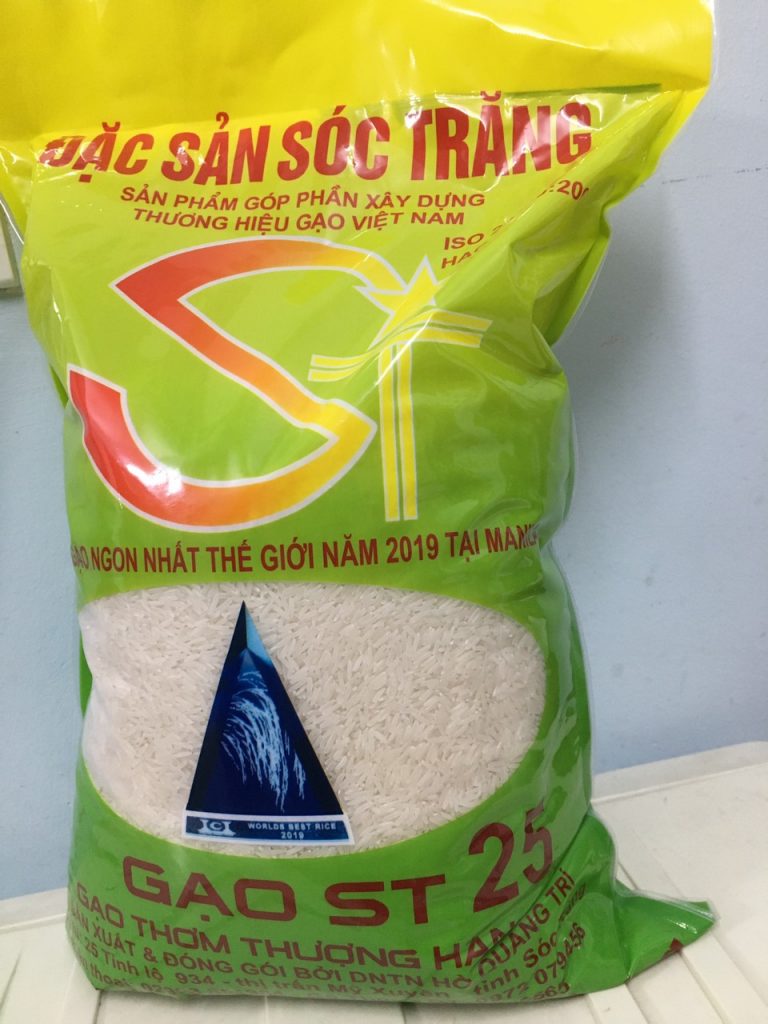Recently, the phenomenon of impersonating and plagiarizing another party’s brand name to take advantage of the popularity and prestige of their products is no longer a rare case in society. However, the phrase biopiracy – a unique form of impersonation is still not known by many people. So, what is biopiracy? What is the impact of biopiracy on the society?
Impersonation of agricultural trademarks
According to the Vietnamese dictionary, impersonation means imitating another name for personal gain or taking someone else’s name (usually to do shady things). The online Collins Dictionary defines impersonation as pretending to be another person with the intent to deceive.
In commercial activity, impersonation is fairly widespread. For example, most recently, the ST25 rice trademarks, the world’s greatest rice in 2019, is being widely faked. Impersonations appear widely on the signs of stores, shops, or are heavily advertised for sale on the internet. Engineer Ho Quang Cua, the “father” of ST25 rice, once addressed the state of his brand being sold widespread across the nation: “It (ST25 rice) has only been marketed for 2 months, how can there be ST25 rice that is extensively sold online”.
In 2018, many newspapers reported that farmers in Ly Son island district expressed deep concern about many small traders and businesses impersonating Ly Son garlic. Ly Son garlic, a famous specialty, is a type of garlic with a mildly spicy flavor, not as pungent as other types of garlic grown in 3 communes An Binh, An Hai, and An Vinh of Ly Son island district, Quang Ngai province. Ly Son garlic was officially protected in the form of a geographical indication under Decision 2421/QD-SHTT of the Director of the National Office of Intellectual Property on June 29, 2020.
In other nations, similar to Vietnam, impersonation of famous agricultural brands is common. For example, the Thai Government have also struggled to prevent the impersonation of Thai Hom Mali Rice, a well-known traditional Thai rice product. It is called Thai jasmine fragrant rice (Khao-hom-ma-li-Thai). It is officially called Thai Hom Mali Rice or Thai Jasmine Rice in English. In Thailand, the situation of impersonating is even more severe than in Vietnam because Thai Hom Mali Rice has won 6 World’s Best Rice Award, namely in 2009, 2010, 2014, 2016, 2017 and 2020.
Biopiracy – a new and dangerous form of impersonation
In the 1990s, developing countries with a long rice farming and rice production tradition were deeply concerned about biopiracy because of a recently emerged form of impersonation. It can be called the phenomenon of appropriating traditional knowledge to transform it into legal intellectual property rights in the form of proprietary patents. According to the New York Times, Texas-based Ricetec Inc has applied to the USPTO to grant a patent for a type of rice that the company also names Basmati.
This erupted into a violent conflict that lasted for many years between the Government of India and the Government of the United States. When biopiracy was still causing tension in international trade between the US and India, around November 2001, the Thailand government had to hire lawyers to prevent the US from granting patents to an American breeder named Chris Deren when he claimed patent protection for a new rice variety developed using genetic resources from Thai Jasmine Rice.
Thailand’s experience in preventing impersonation of Thai Hom Mali Rice and suggestions for Vietnam
While the name Thai Jasmine Rice has become a generic name, the Thai Government quickly thought of a strategy to both deals with the “generic” phenomenon and prevent the impersonation of Thai Jasmine Rice by creating and registering it as a certification mark with the USPTO (USA). In 2004, the national trademark Thai Hom Mali Rice was filed under the name of the Department of Foreign Trade under the Ministry of Industry and Trade of Thailand and was approved by the USPTO to grant protection with the certificate of trademark registration No. 2,816,123.
Foremost, the best way to protect agricultural trademarks abroad, especially in the US market, is that Vietnam should quickly protect geographically-originated specialty trademarks including ST25 rice in the form of certification mark with USPTO for the legal basis for both purposes of countering impersonation and counterfeiting of trademarks and avoiding the risk of this trademark becoming generic names similar to Indian or Jasmine Rice of Thailand. On the other hand, we also need to keep a close eye on the possibility that foreign inventors including breeders, who can foresee large enough commercial benefits such as Basmati rice or Thai Jasmine Rice, may file for a patent protection for a new hybrid based on the genetic resources of plant varieties including the Vietnamese rice variety ST25.
(Source: Bross & Partners)
You can see a list of Vietnam IP firms here.
